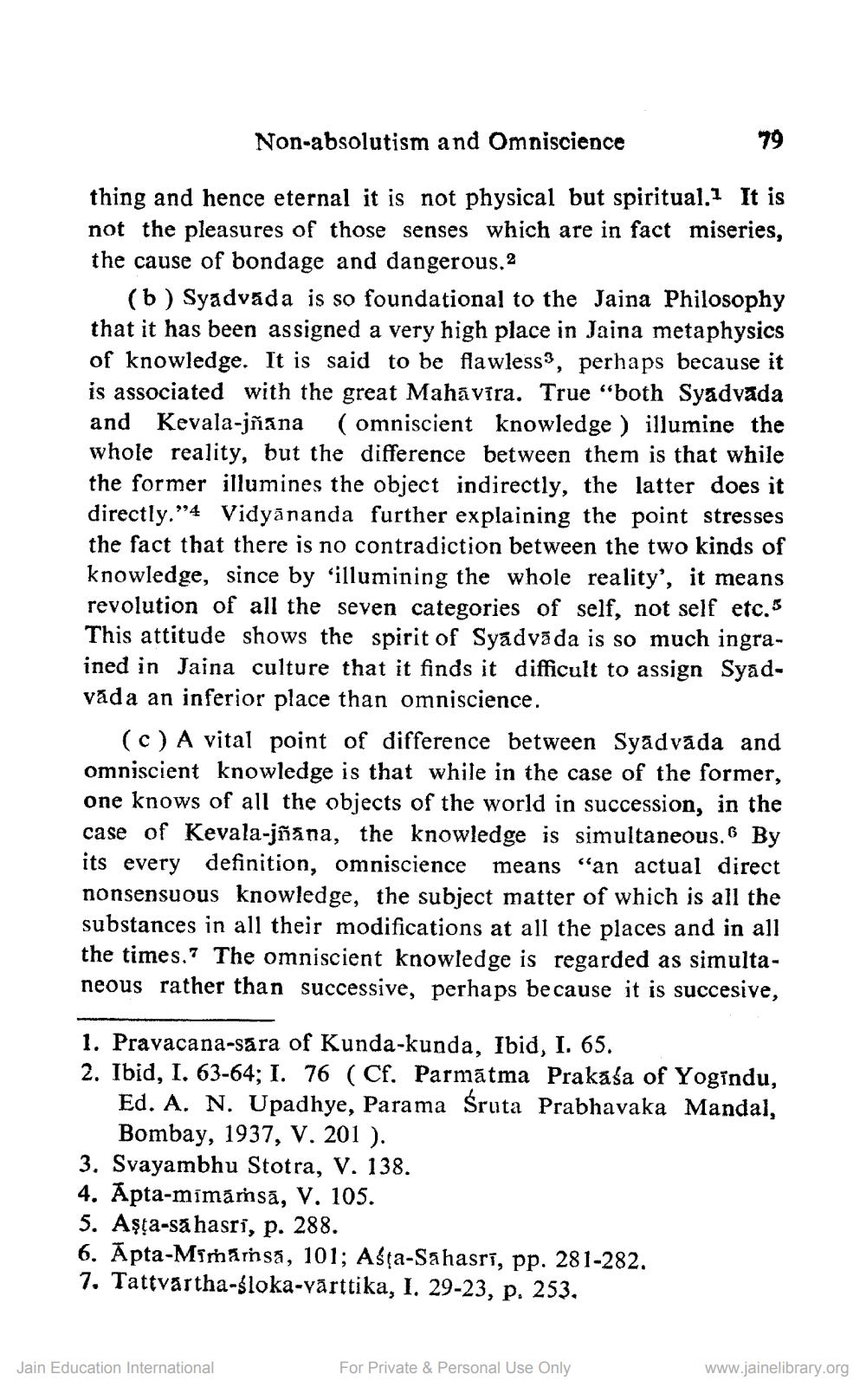________________
Non-absolutism and Omniscience
79
thing and hence eternal it is not physical but spiritual.1 It is not the pleasures of those senses which are in fact miseries, the cause of bondage and dangerous. 2
(b) Syadváda is so foundational to the Jaina Philosophy that it has been assigned a very high place in Jaina metaphysics of knowledge. It is said to be flawless, perhaps because it is associated with the great Mahavīra. True "both Syadvada and Kevala-jñana (omniscient knowledge ) illumine the whole reality, but the difference between them is that while the former illumines the object indirectly, the latter does it directly.”4 Vidyānanda further explaining the point stresses the fact that there is no contradiction between the two kinds of knowledge, since by 'illumining the whole reality', it means revolution of all the seven categories of self, not self etc.5 This attitude shows the spirit of Syadvāda is so much ingrained in Jaina culture that it finds it difficult to assign Syadvåda an inferior place than omniscience.
(c) A vital point of difference between Syadvāda and omniscient knowledge is that while in the case of the former, one knows of all the objects of the world in succession, in the case of Kevala-jñana, the knowledge is simultaneous. 6 By its every definition, omniscience means “an actual direct nonsensuous knowledge, the subject matter of which is all the substances in all their modifications at all the places and in all the times.? The omniscient knowledge is regarded as simultaneous rather than successive, perhaps because it is succesive,
1. Pravacana-sara of Kunda-kunda, Ibid, I. 65. 2. Ibid, I. 63-64; I. 76 (Cf. Parmātma Prakaśa of Yogindu,
Ed. A. N. Upadhye, Parama Śruta Prabhavaka Mandal,
Bombay, 1937, V. 201 ). 3. Svayambhu Stotra, V. 138. 4. Apta-mīmārsa, V. 105. 5. Aşța-sa hasri, p. 288. 6. Apta-Mimarsa, 101; Asta-Sahasrí, pp. 281-282. 7. Tattvartha-śloka-vārttika, I. 29-23, p. 253.
Jain Education International
For Private & Personal Use Only
www.jainelibrary.org




